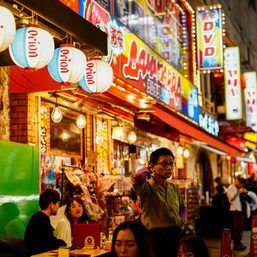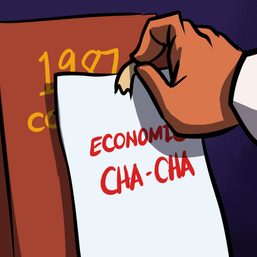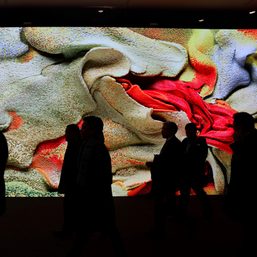SUMMARY
This is AI generated summarization, which may have errors. For context, always refer to the full article.
![[OPINION] The links between COVID-19 and global capitalism](https://www.rappler.com/tachyon/2021/02/china-ph-pandemic.jpg)
Marxists claim that while the COVID-19 pandemic served as the catalyst for the current global crisis, it is capitalism which is to be blamed. And as the pandemic unfolded last year, we did see different instances when political and corporate interests were prioritized.
First, the administration did not impose a travel ban immediately after the first case in the Philippines was confirmed on January 30, 2020. Second, the influx of healthcare equipment such as body suits, gloves, face masks, and face shields, and the acquisition of the Sinovac vaccine, whose efficacy rate is very low, points to how China is favored politically and economically by the administration.
The pandemic could be used by the administration to justify the need to accommodate the interests of China, since the global superpower could help us manage the pandemic and rebuild our economy in return. This increasing dependence of the Philippines, and other developing countries, on China, especially in the management of the pandemic, will further cement China’s status as the leading neo-imperialist in the world.
As the Philippines slowly recovers from the pandemic, the influx of foreign aid and the easing of foreign trade will also make the country more vulnerable to neo-imperialism, which will lead to the country losing sovereignty over its spaces, resources, and people.
Aside from imperialism, capitalism also requires militarism. Is the administration possibly protecting foreign and local capitalist interests with the appointment of military officials instead of health experts to the top COVID-19 management positions?
The COVID-19 pandemic also exposes the precariousness of some industries and the oppressive and exploitative working conditions in many companies. With the limitation in mobility and mass gatherings, many employees in the travel and tourism industry were laid off, many tourism businesses had to cease operations, and local communities which relied on tourism had lost their source of income. Some food and leisure establishments had to close down or had to limit operations.
Even public transportation service providers such as operators and drivers of jeepneys, tricycles, and buses were greatly affected by the pandemic. Currently, transportation services are operational, but physical distancing should be maintained through limits on the number of passengers to be accommodated. However, many people end up not practicing physical distancing anyway, especially if they are in a hurry to go to work and if there is limited transportation during rush hour.
This leads us to the next point, that things seem to be “business as usual” in many workplaces, where there is little regard for the health and safety of workers. Of course, depending on the nature of work, some companies can afford to establish a “work from home” scheme and a skeleton workforce arrangement to ensure that health and safety protocols are met. However, these special arrangements do not apply to other kinds of work, especially those that require manual labor and service and that pay only when a worker shows up for the day.
Many people who have to report to work are contractuals who cannot afford to have salary deductions, do not have enough leaves, do not have health insurance, and do not even have the basic benefits mandated by the law. Most people cannot even afford to get tested for COVID-19. Reporting to work not only exposes them to the virus but also makes them carriers of the virus. For these people, it is the case that they have to make a choice between suffering from hunger or from the virus.
The increasing reliance of the Philippine economy on China’s interests, and this “business as usual” behavior of big corporations – while small and medium enterprises are dying and while many employees are laid off – are presented as necessary measures to ensure economic development.
The COVID-19 pandemic has exposed the real nature of global capitalism. The former has revealed how the latter has contributed to the underdevelopment of many countries, including the Philippines. Despite the introduction of economic reforms in the past and of foreign loans for the development of industrial and agricultural infrastructure and enterprises, the majority of Filipinos still remain poor and vulnerable to disasters such as COVID-19.
Due to systemic deficiencies brought about by centuries of exploitation and underdevelopment, developing countries are now more vulnerable to the pandemic, and they even face difficulties in accessing treatment and recovery programs. Theorists of underdevelopment theory such as Frank, Wallerstein, and Amin proposed that the way to eliminate the problems of capitalism is to replace the capitalist world system with global socialism.
It is tempting to think that we can build resiliency, manage disasters better, and avoid great losses in resources and life in general without capitalism. – Rappler.com
Ma. Bernadeth Laurelyn “Biel” Pante is an MS Rural Sociology student at the University of the Philippines Los Baños.
Add a comment
How does this make you feel?





There are no comments yet. Add your comment to start the conversation.